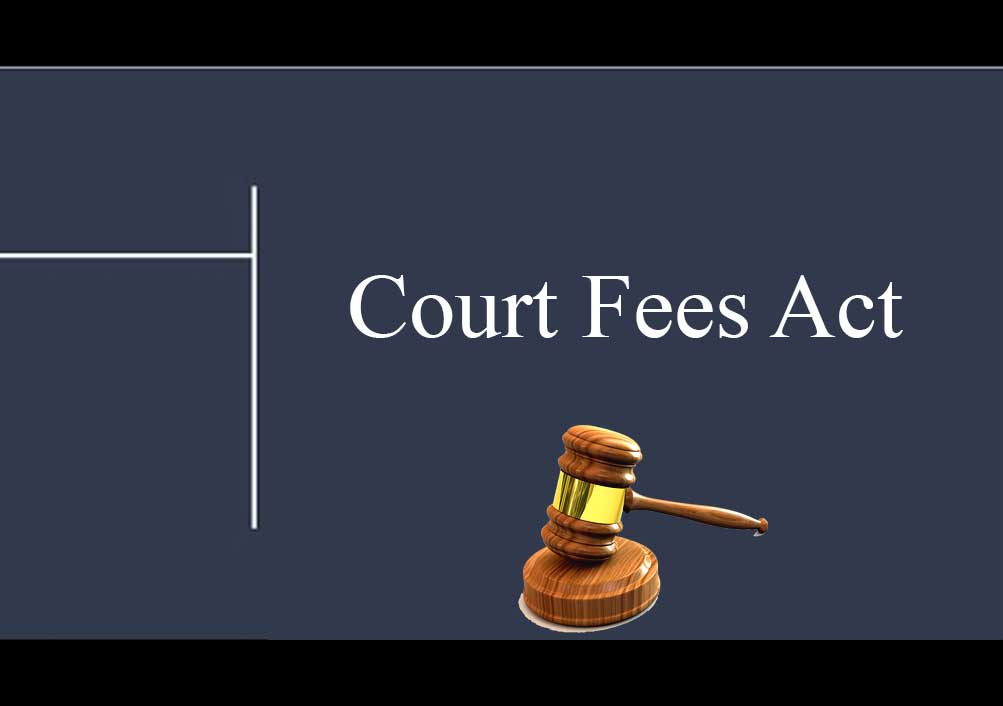In CR No.2005 of 2022- PUNJ HC-Sale deed executants cannot evade affixation of court fee on plaint as per sale consideration by clothing their prayer as that for declaration pertaining to nullity of sale deeds with relief of permanent injunction u/s 7(iv)(c) of Court Fees Act: P&H HC Justice Meenakshi I. Mehta [24-05-2022]

Read Order: Roma Kumari v. Ram Niwas and others
Monika Rahar
Chandigarh, May 25, 2022: The Punjab and Haryana High Court has recently held that the petitioners (executants of the sale deed) cannot evade the affixation of the court fee on the plaint as per the sale consideration by clothing their prayer as that for declaration pertaining to the illegality and nullity of the said sale deeds with consequential relief of permanent injunction, as envisaged under Section 7(iv) (c) of the Court-Fees Act, 1870.
The Bench of Justice Meenakshi I. Mehta was considering a revision petition where the petitioner (fifth plaintiff) assailed the order of the trial Court whereby the application moved by respondents (the defendants) under Order 7 Rule 11 CPC for seeking the rejection of the plaint on the ground of non-affixation of the proper court-fee on the same, was allowed and the plaintiffs were directed to pay the ad-valorem court-fee on the sale consideration of both the sale deeds under challenge while observing that otherwise, their plaint would be rejected.
In this case, a suit was filed by the plaintiffs with the performa defendants for seeking a decree for a declaration to the effect that two sale deeds and the mutations entered and sanctioned on the basis thereof, were null and void and not binding upon their rights. They further prayed for the consequential relief of permanent injunction to restrain the defendants from alienating the said land.
The petitioner’s counsel contended that in the civil suit, the petitioner and the performa respondents did not claim the relief of possession, rather they merely sought the decree for the afore-referred declaration along with the consequential relief of permanent injunction and in these circumstances, thus making their case fall under Section 7(iv)(c) of the Act of 1870.
Thus, the Counsel submitted that the petitioner and the performa respondents were not required to affix the ad-valorem court fee on the plaint as per the sale consideration mentioned in both the above-said sale deeds and therefore, the impugned order was not legally sustainable.
The Court did not find any substance in the argument of the Counsel and rather, from the averments made in the plaint and perusal of the sale deeds, added that these sale deeds were executed by the first petitioner (seventh performa-respondent) on her own behalf as well as on behalf of the petitioner and her co-plaintiffs (performa respondents eighth to tenth) being their Attorney and thus, she (seventh performa respondent), along with the petitioner and the eighth to tenth performa-defendants, was the executant of these sale deeds.
The Court, thus while observing that the ad-valorem court fee was required to be affixed on the plaint as per the sale consideration mentioned in the said sale deeds, held that the petitioner and the performa respondents were the executants of the said sale deeds and thus were required to seek the cancellation of these sale deeds.
Justice Mehta asserted that they could not evade the affixation of the court fee on the plaint as per the sale consideration by clothing their prayer as that for declaration qua the illegality and nullity of the said sale deeds with consequential relief of permanent injunction, as envisaged under Section 7(iv) (c) of the Act of 1870.
Sign up for our weekly newsletter to stay up to date on our product, events featured blog, special offer and all of the exciting things that take place here at Legitquest.




Add a Comment